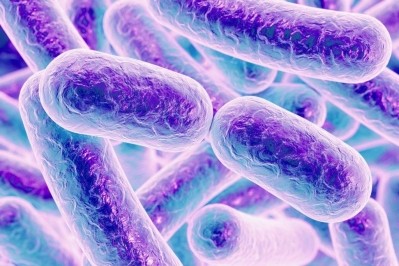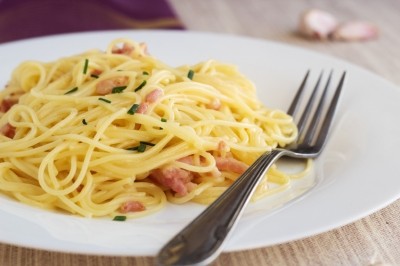From carbs to cancer: Gut bacteria linked to colorectal cancer mechanism

The study, published in Cell, noted that while colorectal cancer has been linked to carbohydrate-rich western diets, and some have suggested the microbiota may play a role, the underlying mechanisms behind carbohydrate-rich diets being linked to increased cancer rates has been unclear.
Led by Alberto Martin from the University of Toronto, the new study may provide clues to such mechanisms by showing that gut microbes metabolise carbohydrates in the diet, and that these metabolites - such as the fatty acid butyrate - may cause intestinal cells to proliferate and form tumours in mice that are genetically predisposed to colorectal cancer.
The use with antibiotics that damage the gut microbiota and a low-carbohydrate diet were both found to significantly reduce tumours in the mice, said Martin - who suggested that such 'easy interventions' provide a starting point for preventing common types of colorectal cancer in humans.
"Because hereditary colorectal cancer is associated with aggressive and rapid tumour development, it is critical to understand how major environmental factors such as microbes and diet interact with genetic factors to potentially affect disease progression," said Martin. "Our study provides novel insights into this question by showing that gut bacteria interact with a carbohydrate-rich diet to stimulate a prevalent type of hereditary colon cancer."
'Western diet', carbs and DNA repair
Carbohydrates account for about half of the daily caloric intake of adults in many western-style diets. This is type of dietary pattern has been linked to colorectal cancer in humans by previous studies.
Colorectal cancer is also frequently associated with mutations in a tumour suppressor gene called APC as well as the MSH2 gene - which plays a critical role in repairing DNA damage, said the team.
They noted that it until now, it had been unclear why mutations affecting these DNA repair pathways are much more common in colorectal cancer compared with other cancers.
However, the findings from Martin and his colleagues suggest that gut microbes also contribute to the development of colorectal cancer, and could interact with diet to explain how the mutations could cause this type of cancer.
"By providing a direct link between genetics and gut microbes, our findings suggest that a diet reduced in carbohydrates as well as alterations in the intestinal microbial community could be beneficial to those individuals that are genetically predisposed to colorectal cancer," said Martin.
Knockout study
To explore this question, Martin and his collaborators used mice that had APC and MSH2 mutations and were therefore predisposed to develop colorectal cancer.
They reported that mice given either antibiotics or a low-carbohydrate diet had reduced cell proliferation, as well as the number of tumours in the small intestines and colons.
These groups of mice also had reduced levels of certain gut microbes - which are known to metabolise carbohydrates to produce the fatty acid butyrate.
"By altering the microbiota composition reduces CRC in APCMin/+MSH2−/− mice, and that a diet reduced in carbohydrates phenocopies this effect. Gut microbes did not induce colorectal cancer in these mice through an inflammatory response or the production of DNA mutagens but rather by providing carbohydrate-derived metabolites such as butyrate that fuel hyperproliferation of MSH2−/− colon epithelial cells," the team wrote.
In further experiments, when the researchers increased butyrate levels in the antibiotic-treated mice, cell proliferation and the number of tumours increased in the small intestines.
Taken together, Martin and his team said their findings suggest that carbohydrate-derived metabolites produced by gut microbes drive abnormal cell proliferation and tumour development in mice genetically predisposed to colorectal cancer.
Source: Cell
Published online ahead of print, doi: 10.1016/j.cell.2014.04.051
"Gut Microbial Metabolism Drives Transformation of Msh2-Deficient Colon Epithelial Cells"
Authors: Antoaneta Belcheva, Thergiory Irrazabal, et al

























